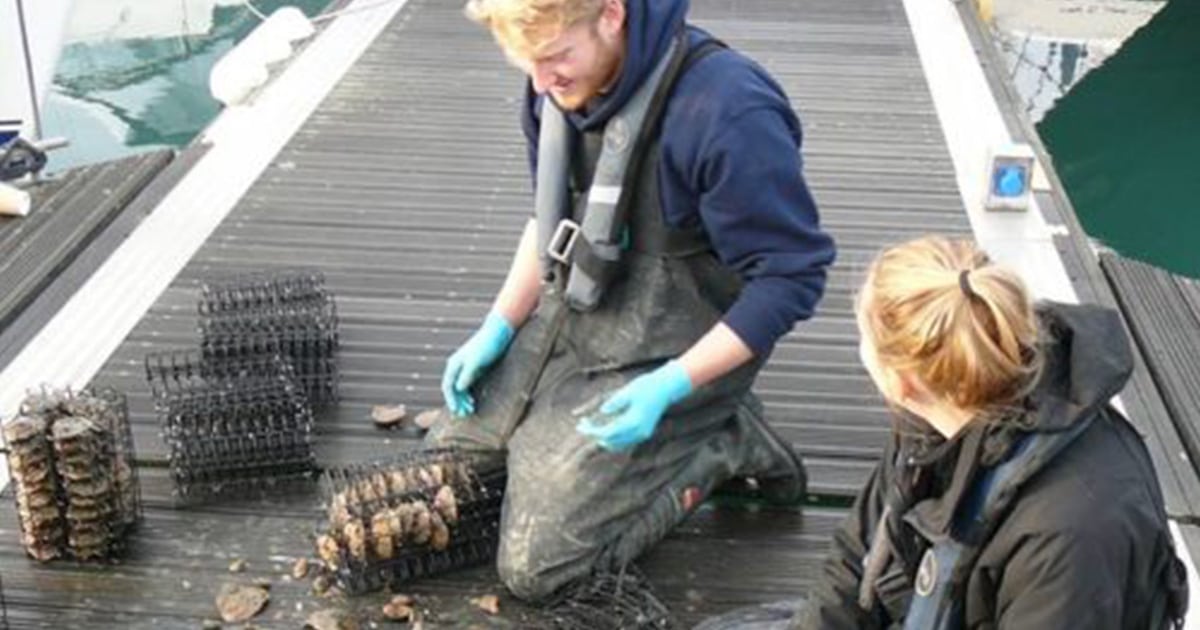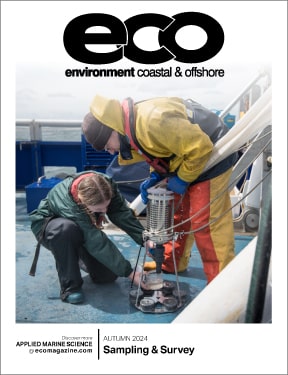The Cowes based charity, which provides life-enhancing water-based adventures, education, and world-leading maritime training, worked in partnership with Blue Marine Foundation and Cowes Harbour Commission to get the baskets and the initial oyster stock to Cowes in the river medina. This initiative would not have been possible without the generous funding support provided by Cowes Harbour Commission. The project will facilitate the release of millions of larvae into the Solent, while also providing refuge for other marine life including endangered European eels, young seahorse, and sea bass.
With sustainability a part of its course curriculum for Maritime Foundation Year 1 for the last three years, UKSA has now introduced it to all of its NCFE Outdoor and Adventurous Activities courses.
Ben Willows, CEO of UKSA said: “The launch of the oyster regeneration project at UKSA was landmark, and it was important to us to be able to incorporate the project within UKSA as much as possible. A great start in making a difference in the marine environment we call home, the project is a step forward for sustainability on the Island and the students having such a local reference while learning about sustainability is fantastic. The students have thoroughly enjoyed their work with the oysters so far and making their regular check-ups on the newest members to the UKSA team.”
Gary Hall, CEO of Cowes Harbour Commission said: “Cowes Harbour Commission is proud to have been involved in funding this groundbreaking project. The commission has long term environmental and sustainability plans and targets for the management of the harbor, estuary, and river medina. This project has wide reaching benefits in many respects and now that the oyster project is part of the sustainability modules of UKSA’s education courses the next generation of potential maritime professionals can learn about the incredible work of these marine ecosystem engineers.”
As part of the module, the students will undertake work on understanding sustainability and impact on the environment as well as taking away knowledge of geographical forces that influence landscape development and explore ecosystems and the factors which influence ecology. They will also learn about the impact of using the countryside, how to approach sustainable recreational use of the countryside and understand organizations associated with conserving the environment.
The first oysters were placed in baskets beneath UKSA’s pontoons in autumn and the students will be checking on the oysters and the cages, as well as measuring their growth. As ecosystem engineers, the oysters will provide a range of benefits to the environment and people such as improving water quality, with a single oyster able to filter up to 200 liters of water every day. They also act as a natural defense to coastal erosion.
Despite the last known oyster fishery on the Isle of Wight closing in the 1970s, between 1972 and 2006, the Solent supported the largest native oyster fishery in Europe, however the oyster population has declined significantly, and the fishery collapsed in 2013. Native oyster reefs in the UK have declined by 95 percent due to overfishing, pollution, disease, habitat loss and other pressures. Native oysters are classified as a priority species in the UK’s Biodiversity Action Plan and restoration is a high priority at a national, European, and global level with an estimated 85 percent of oyster beds and reef habitats lost worldwide. Since 2015, Blue Marine Foundation has restored over 150,000 oysters using innovative nursery systems and creating oyster reefs has developed a strong working group in the Solent.

